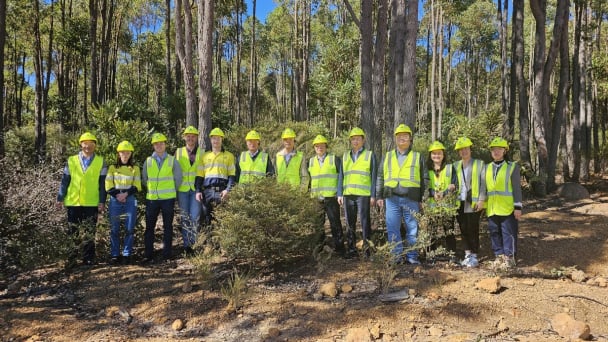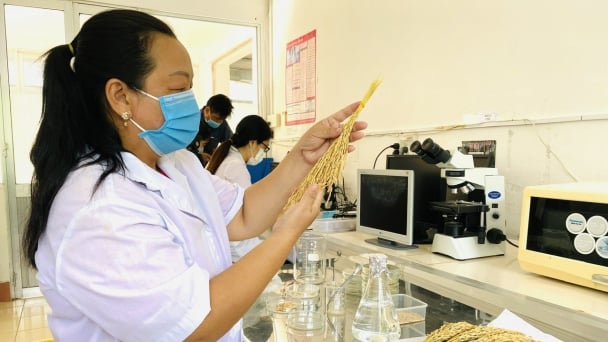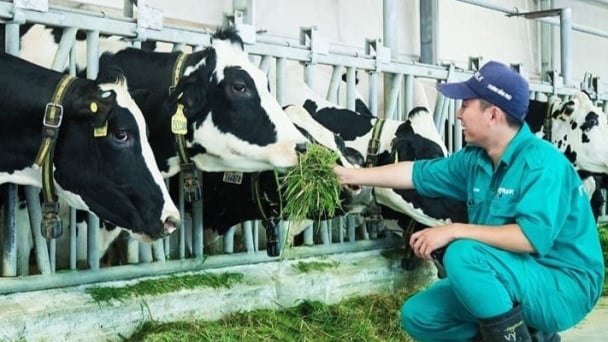August 18, 2025 | 07:29 GMT +7
August 18, 2025 | 07:29 GMT +7
Hotline: 0913.378.918
August 18, 2025 | 07:29 GMT +7
Hotline: 0913.378.918
On September 12, the Government Office published papers regarding Deputy Prime Minister Vu Duc Dam's opinion on the recall of Hao Hao instant noodles containing Ethylene Oxide in certain European nations.
The Deputy Prime Minister demanded that the Ministry of Health review and promulgate national technical regulations on criteria and ethylene oxide limit levels as soon as possible to ensure the safety of food products.
The ministry was tasked with hosting and coordinating with the Ministries of Agriculture and Rural Development and Industry and Trade to examine, update, and communicate widely on the requirements and limits of restricted and banned substances in foods in accordance with the importing country's requirements.
The request came after the Vietnamese leader reviewed the MoIT report on the results of inspection and verification of information about Acecook Vietnam Joint Stock Company's Hao Hao instant noodles, which were exposed with Ethylene Oxide and were recalled in several European countries.
Previously, as stated by the Department of Science and Technology under the MoIT, Vietnam had not issued regulations allowing or prohibiting the use of Ethylene Oxide in agricultural production or limiting Ethylene Oxide residues in food.
Meanwhile, the regulation of technical standards for each type of food that each country or region unilaterally offers varies greatly and is heavily influenced by the balance of trade between countries/regions, as well as each country's import and export policies, technical conditions, management methods, and consumption habits.
On September 12, Acecook released a statement confirming that Hao Hao spicy and sour shrimp noodles sold in the Vietnamese domestic market do not contain Ethylene Oxide and are of high quality.
According to Eurofins Analytical Center findings, the domestic Hao Hao spicy and sour shrimp noodles contain no EO and a trace quantity of 2-chloroethanol (2-CE) with a concentration of 1.17 ppm. This 2-CE level is much lower than the standards of the United States (940 ppm), Canada (940 ppm), and a few other nations.
Concerning the source of the appearance of 2-CE in products, Acecook Vietnam stated that, based on initial business verification, suppliers were using EO to disinfect some materials. Furthermore, the supplier's raw material examination revealed the existence of some 2-CE.
Translated by Linh Linh

Vietnam’s Ministry of Agriculture and Environment is learning from Australia’s experience in managing, exploiting, and processing strategic minerals, while promoting sustainable cooperation.

(VAN) Heads of agencies, units, or localities where IUU violations occur will be strictly disciplined and deemed to have failed their 2025 duties.

(VAN) The One ASEAN, One Response declaration emphasizes ASEAN’s commitment to responding to disasters as a unified bloc, both within and beyond the region.

(VAN) The US’ reciprocal tariffs are expected to have a major impact on Vietnam’s agro-forestry-fishery exports. Beyond measures to maintain this crucial market, industry leaders stress the need to pivot strongly toward other destinations.

(VAN) The chances of reaching dangerous temperatures are only growing as the planet keeps warming up because of climate change, scientists warn.

(VAN) Resolution 57 of the Politburo opens up a golden opportunity for science and technology to become the primary driving force for the restructuring of the agricultural sector.

(VAN) Deep integration combined with strict requirements for quality and food safety demands that Vietnam's dairy industry adopt a well-structured strategy for sustainable development.